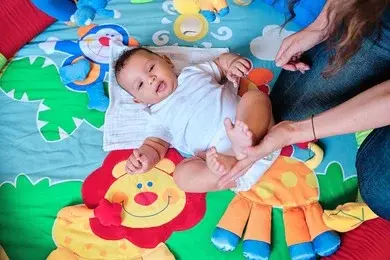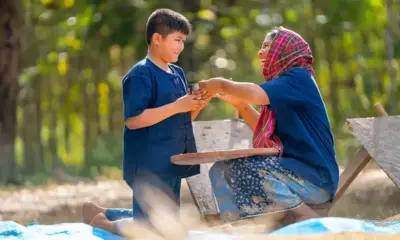Baby Development
11 Types of Play That Help Children Grow and Develop

Children benefit greatly from various types of play for children, which support their brain growth and skill-building. Every child enjoys different kinds of play, which promote learning and development naturally. Play can be structured or free, active or quiet. These play types stimulate creativity, social skills, and physical health, making play essential for childhood growth.
Why Play Matters for Children’s Development
How Different Types of Play Boost Growth
Playing teaches children problem-solving, communication, cooperation, and physical coordination. For example, playing with others helps children learn social skills. Additionally, physical play develops muscles and improves motor skills. Play also encourages creativity, critical thinking, and language development.
Besides cognitive benefits, play helps children relax and build resilience. In fact, multiple short play sessions throughout the day can be more effective than one long session. Parents can also turn household chores into playful learning activities.
The 11 Types of Play for Children
- Unoccupied Play
Babies engage in unoccupied play by moving their arms and legs or exploring objects. This type builds body awareness and prepares them for more active play. - Solitary Play
Toddlers often play alone, focused on their own activity like flipping through books or stacking blocks. This helps build independence and concentration. - Onlooker Play
Children watch others play without joining. Observing peers helps them learn social rules and discover new ways to interact. - Parallel Play
Children play near each other but don’t interact. This stage is important as kids learn social boundaries and observe others’ actions. - Associative Play
Children play with the same toys or activities but do not coordinate their efforts. This play encourages social connections and communication skills. - Cooperative Play
This type involves teamwork where children share goals, take turns, and negotiate. Cooperative play teaches conflict resolution and leadership skills. - Digital Play
Digital games and apps can provide cognitive challenges and digital literacy when used wisely and supervised. Digital play is engaging but should be balanced with physical activity. - Active Play
Running, jumping, dancing, or playing sports help children develop strength, stamina, and motor skills. Active play also teaches persistence and fair competition. - Creative Play
Painting, singing, dancing, and building encourage imagination and innovation. Creative play helps children express emotions and develop unique talents. - Dramatic Play
Role-playing as doctors, superheroes, or parents allows children to explore emotions and social roles. Dramatic play fosters empathy and problem-solving skills. - Symbolic Play
Children invent imaginary scenes or objects, such as pretending a stick is a sword. This form of play improves language skills and emotional understanding.
Tips for Encouraging Play at Home and School
- Balance Different Types of Play
To support overall development, encourage a variety of play types. For instance, combine active outdoor play with quiet creative time. Also, limit screen time while promoting hands-on activities. When possible, join your child’s play to boost bonding and guide learning. - Provide Safe and Stimulating Environments
Offer safe spaces for children to explore and experiment. Provide age-appropriate toys, art supplies, and outdoor equipment. Likewise, school settings should balance structured and free play to meet diverse developmental needs.
Conclusion
Understanding these 11 types of play for children helps parents and educators foster well-rounded growth. Each type supports unique skills and development areas. By encouraging diverse play experiences, you can help children thrive physically, mentally, and socially.
Explore more expert tips and news about child development on our website today!












